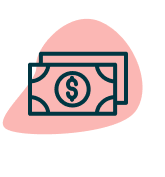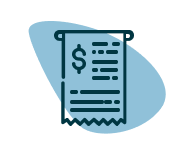Small Business Loans
Last updated Dec. 17, 2024
Welcome and congratulations! If you’re joining us here, then that means you belong to a community of our economy’s often unsung heroes—small business owners.
Whether you’re here with the sparkle of a business idea and are wondering how to get started, you’ve been in business for years and you’re looking for financing to help your business reach its next level, or any scenario in between, Fundera is here to guide and support you.
How much do you need?
No cost to you
Your credit score won't be impacted
Compare multiple lenders with one application
Where to Get a Small Business Loan
Today, there are more options than ever for small businesses to get access to capital. The benefits and drawbacks of each largely revolve around qualification requirements, funding speeds, and interest rates.
Banks
➡️ Start your search here if you have good-to-excellent personal credit, solid annual revenue, and a bank you’re already happy working with.
Traditionally, most small business owners have turned to banks (and credit unions) to apply for financing. In most cases, your local bank will be able to offer you some of the best rates and terms, particularly if you already have an established relationship (i.e. a personal or business bank account) with the bank. Typically, you’ll apply for a bank loan over the phone or in person, which is another reason it can be helpful to find a local branch when comparing bank loans.
Along with SBA loans, bank loans tend to be some of the tougher loans to qualify for, requiring good-to-excellent personal credit scores, at least a couple of years of business history, and fairly high annual revenue amounts. But shop around at your local banks to see what’s on offer. If you can qualify, a bank loan will be one of the most competitive and reliable financing options.
SBA Lenders
➡️ Continue your search here if you have good-to-excellent personal credit, have tried and failed to get financing elsewhere, and don’t require immediate or fast funding.
Loans backed by the U.S. Small Business Administration (SBA) are some of the most sought-after small business loans—and with great reason. SBA loans typically offer competitive interest rates (maxing out around 16%), lengthy repayment terms (10-25 years) and large loan amounts (up to $5 million).
These appealing benefits, of course, come with tradeoffs: high qualification requirements and slow funding speeds.
While the SBA itself is not a lender, it partially guarantees SBA loans, which gives banks, credit unions, and even some online lenders the incentive to fund small businesses. If you meet the qualification requirements and have been unsuccessful with your small business loan application elsewhere, turn your efforts to these loans.
Great news! The SBA also funds microloans. These are term loans capped at $50,000 and with terms up to seven years. SBA microloans are designed for startups, and the credit requirement is a bit lower than other SBA loans.
Online Lenders
➡️ Begin your search here if you’re a startup business (open less than two years), have a personal credit score that needs improvement, and/or you need fast funding.
Online lenders are a viable alternative when small business owners can’t qualify for an SBA or bank loan. They often have more flexible qualification requirements and the ability to approve and fund a loan within days rather than weeks or months. As you might expect, these benefits come at a cost: typically much higher interest rates and shorter terms than bank or SBA loans.
Online lenders offer a variety of loan types, from term loans and lines of credit to equipment financing and invoice financing.
Microlenders
➡️ Start your search here if you need only a small loan and don’t have the credit score or time in business to meet the qualifications for a bank loan.
Microlenders frequently operate in the nonprofit space, and many of them concentrate their lending efforts on communities that have historically faced challenges in securing funding, such as women, veterans, and minorities.
A microloan is typically a term loan of no more than $50,000. Depending on the lender and the amount, you may be able to get an interest-free microloan or one without collateral. This type of loan can be a great option for startups and business owners with low personal credit scores.
Merchant Cash Advance Companies
➡️ Turn to this option only if you can’t get any other small business loan or grant and you need capital right away.
You may already be well aware that merchant cash advances, sometimes called business payday loans, are a financing option to be wary of. This part of the financing world is ripe for predatory lenders, so proceed cautiously if you’re entertaining a cash advance. Interest rates can be outrageous (sometimes reaching three digits), contracts can be particularly confusing and sometimes intentionally misleading, and these companies may require a daily repayment schedule. All of these factors can lead you into a cycle of business debt that’s difficult to break out of.
You’ll know a merchant cash advance company is worth your consideration if it’s transparent with its rates and fees and upfront about its products and services.
Always read any agreement carefully and thoroughly before signing, no matter the loan or lender.
Types of Small Business Loans
Compare Your Small Business Loan Options
With so many lenders and loan types available, it can feel overwhelming as you begin your small business loan search. Depending on your business needs and circumstances, though, certain loan types will be a better fit for you than others. These details should help you narrow your focus:
SBA Loan
Best for: Any small business with at least two years of established business history.
Funding speed
Term length
Keep in mind
Term Loan
Best for: A lump sum of cash with flexible uses and the option for longer repayment terms.
Funding speed
Term length
Keep in mind
Business Line of Credit
Best for: Access to a revolving line of capital that can be used for a variety of needs.
Funding speed
Term length
Keep in mind
Microloan
Best for: A small sum of capital, particularly for small businesses operating in underserved communities.
Funding speed
Term length
Keep in mind
Equipment Financing
Best for: Purchasing business equipment, hardware or software.
Funding speed
Term length
Keep in mind
Invoice Financing
Best for: Business-to-business companies with outstanding invoices, typically between 30 and 90 days past issue date.
Funding speed
Term length
Keep in mind
Merchant Cash Advance
Best for: Businesses that can’t qualify for any other loan type. MCAs should be a last-resort option.
Funding speed
Term length
Keep in mind
How to Qualify for a Small Business Loan
The requirements to qualify for a business loan largely depend on the individual lender you’re working with and the specific loan product you’re applying for. Overall, however, lenders will likely first look at three metrics to determine whether or not you qualify:


Generally, the better your personal credit, the stronger your annual revenue, and the longer your time in business, the more likely you are to qualify for a small business loan—and one with the most desirable rates and terms. But if your qualifications aren’t ideal, don’t lose hope! There are still options for you to consider.
Nobody Knows Small Business Loans Like Us
85,000+ small businesses helped
Over $2.5 billion in financing secured
A+ BBB Rating
5 stars on Trustpilot
How Fundera Helps Small Businesses Get a Loan
Fundera connects you to your best loan options through our online marketplace of vetted business lenders. With one simple application, you can see all the products and lenders you qualify for, and start evaluating which small business loan is best for your business.
How much do you need?
No cost to you
Your credit score won't be impacted
Compare multiple lenders with one application
Frequently asked questions
Is it hard to get a small business loan?
What makes you eligible for a small business loan?
What credit score do I need to get a small business loan?
What are the easiest business loans to get approved for?